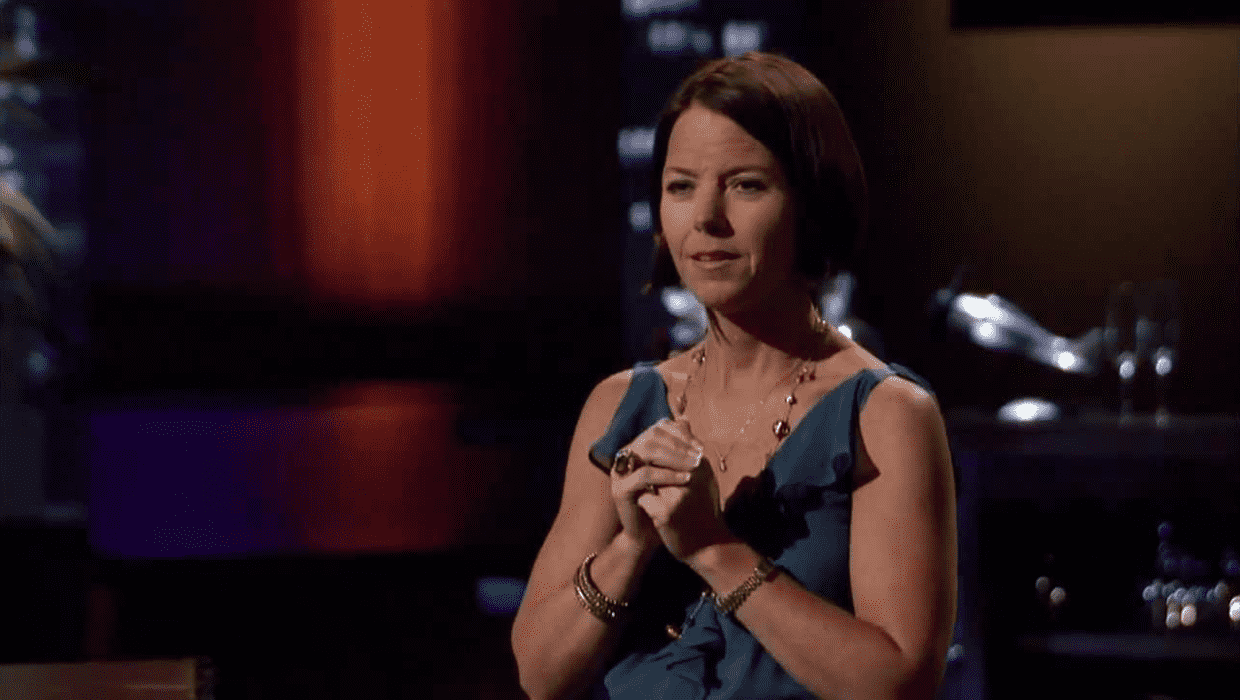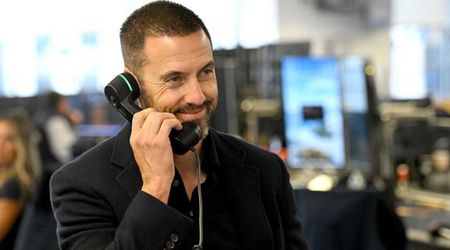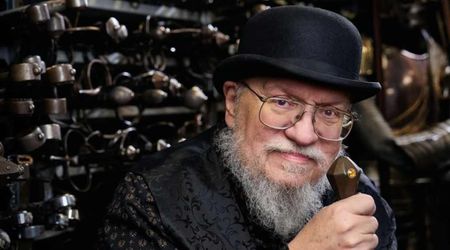'Shark Tank': From Toygaroo to Breathometer, Top 5 Products that failed in the real world

LOS ANGELES, CALIFORNIA: 'Shark Tank' is a television show in which entrepreneurs present their business ideas to a panel of accomplished investors, and if they manage to impress them, they may get investment for their venture. Everyone understands that being on 'Shark Tank' is a risky game, yet failures on 'Shark Tank' are not necessarily a negative thing.
To say the least, the show's track record of success is intimidating, and it's easy to become disheartened when you see the innumerable products that failed. The show focuses on fascinating direct-to-consumer, mass-market items that have the potential to appeal to a broad audience. After all, the show's purpose is to maximize TV viewers rather than the Sharks' financial portfolio performance. Getting free exposure to more than millions of viewers on national television is a fantastic advertising opportunity, regardless of whether your firm requires cash. Although this does not happen to every business, it is not uncommon. Here is our list of the biggest and most well-known 'Shark Tank' fails in advance of the show's first live season premiere.
RELATED ARTICLES
'Shark Tank': How much do the Sharks earn from ABC show?
'Shark Tank': Project Pollo leaves with no deal, fans say 'Sharks got it right'
ToyGaroo (Season 2, episode 2)
The Ask: $100,000 in exchange for 10% equity
The Offer: $200,000 for 35% equity
Toygaroo, a startup that branded itself the "Netflix of toys" since it allowed users to rent toys every month, was so appealing that Kevin O'Leary and Mark Cuban invested $200,000 for 35% control of the firm in 2011. Toygaroo filed for Chapter 7 in April 2012, less than a year after receiving the investment. In 2016, the firm closed for good. The firm collapsed for two primary reasons, according to founder Phil Smy. First, it was difficult to find reasonably priced toys. They expected their funders to assist them with Mattel contacts, but nothing came of it. Second, because the toys were of varying sizes, shipping costs would skyrocket. This was an issue since they used a "free shipping" concept. They wanted to leave to deal with the situation, but their newfound investors were reluctant.
When the episode aired, the company's stock price increased, as it does with most 'Shark Tank' appearances. Which was not what they needed because a sudden rush into a stock-dependent firm is not a good thing! According to Phil, the company would have been far better off developing slowly and organically, giving them more time to deal with some of the sourcing and shipping issues as discussed before. This, along with the lack of agreement on the shipping problem, led Phil to believe that participating in 'Shark Tank' was bad for the firm.
ShowNo Towels (Season 3, episode 4)

The Ask: $50,000 in exchange for a 25% stake
The Offer: $75,000 for 25% equity
Shelly Ehler went on the show in 2012 with her product for little children who may need to change in public locations, like a swimming pool. Her towel/poncho crossover was dubbed "Show No Towels." Shelly won over numerous sharks but opted to collaborate with Lori Greiner, who handed her $50,000 on the spot, the first time a contestant had gotten money on demand in the show's history at the time.
They collaborated for a year until the firm went bankrupt. Greiner and Shelly Ehler's relationship suffered right from the start. Lori cautioned Shelly not to cash the check the next day and subsequently sought to modify the terms of the deal (requested for 70% of the company rather than 25%, and when Shelly Ehler refused, Greiner modified the contract to a loan that could only be used for sales rather than other costs). Furthermore, the company had a lot riding on a huge agreement with Disney. After several months of attempting to move the deal forward, it failed due to the product's online sales not being spectacular enough and a profit margin that was insufficient to fulfill Disney's expectations. An agreement for royalties with Franco Manufacturing was another arrangement that failed. The firm was abandoned as a result of the collapse of both deals and the conflict between the founder and investor.
Sweet Ballz (Season 5, episode 1)
The Ask: $250,000 for 10% equity
The Offer: $250,000 for 25% equity
Everyone, even investors, like cake. Cole Egger and James McDonald, the founders of Sweet Ballz, a cake ball firm, must have done something well since they received $250,000 from Barbara Corcoran and Mark Cuban in return for 25% of their sweets company. According to 'Shark Tank' Success, the cake firm made $700,000 in cake ball sales from 7-11 franchises alone at one time.
That delicious success, however, did not endure. Sweet Ballz's narrative is a typical tale of two founders feuding. Soon after the 'Shark Tank' deal was made, Cole Egger and James McDonald got into a lawsuit. James was suing his business partner because he felt he was developing a competitor product behind James' back - Cole began operating the competing Cake Ballz brand. Things between the two partners were so tense that a restraining order was filed. The issue was that the quarrel between the founders occurred just after the 'Shark Tank' episode highlighting the product aired, resulting in a significant wasted opportunity for the firm. The site was down, and the Sweet Ballz domain was briefly switched to the Cake Ballz website. The company continues to exist, although the partnership of the founders does not.
Body Jac (Season 1, episode 5)
The Ask: $180,000 in exchange for a 20 percent stake
The Offer: $180,000 for 50% equity
It may seem hard for new workout equipment to excite major contributors, but in Season one, infomercial sensation and entrepreneur Jack Barringer was able to persuade investors Kevin Harrington and Barbara Corcoran to invest $180,000 in his company. His gadget, dubbed "The Body Jac," was designed to make pushups simpler while strengthening other muscles.
Barbara Corcoran told Jack Barringer on the show that to conclude the investment deal, he needed to drop 30 pounds to prove the machine worked. He did so, and the transaction went through; nevertheless, the firm did not succeed after that. The product's website was shut down in 2012, and Barbara stated in interviews that investing in the firm was the "worst business deal she had ever made." There is no public information accessible on the specific causes of the business's demise.
Breathometer (Season 5, episode 2)
The Ask: $250,000 for a 10% stake
The Offer: $1 million for 30% equity
The Breathometer seemed too wonderful to be true, and it could have been. The Breathometer was a portable breathalyzer gadget that assessed blood alcohol levels via a smartphone app. Charles Michael Yim, the company's creator, raised $1 million in 2013 from Robert Herjavec, Lori Greiner, Daymond John, Mark Cuban, and Kevin O'Leary, who got 30% equity. The fact that all five sharks were prepared to invest in it appeared to be a good sign for the product. The reality, however, was not so smooth.
Following the deal, the company had several issues. They were having difficulty completing all the orders they were receiving, and it was soon discovered that the gadget did not perform as stated. The device's readings were inaccurate, and it occasionally recorded a blood alcohol level significantly below the real number. This is a major issue since it may encourage people to drive when they are not physically capable of doing so. The Federal Trade Commission intervened and ordered Breathometer to repay all of its clients in full (and take the product off the market). Mark Cuban dubbed it the "worst execution in the history of Shark Tank" and slammed the founder for mismanaging the funds.
Season 14 of 'Shark Tank' premieres on Friday, September 23, at 8 pm ET/PT.










